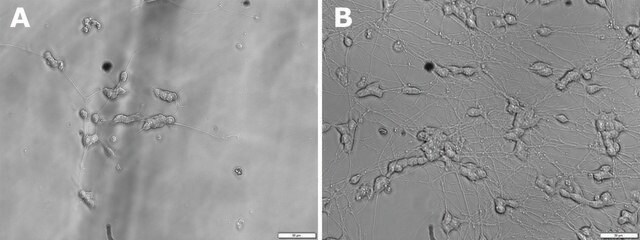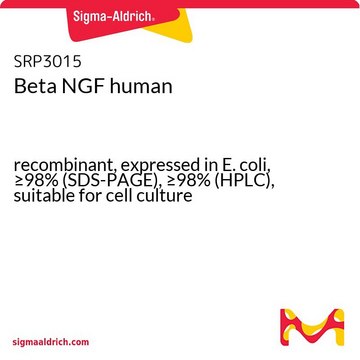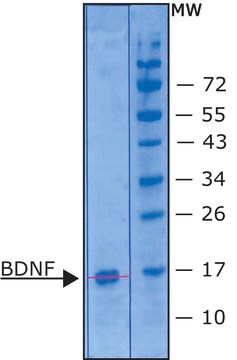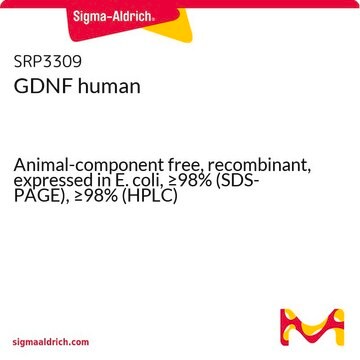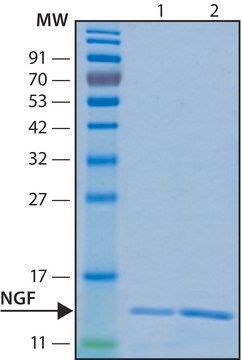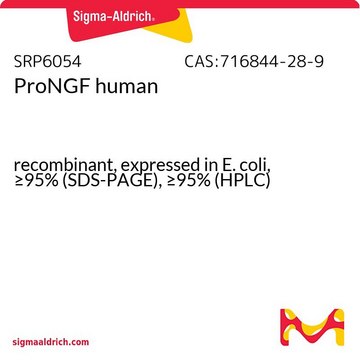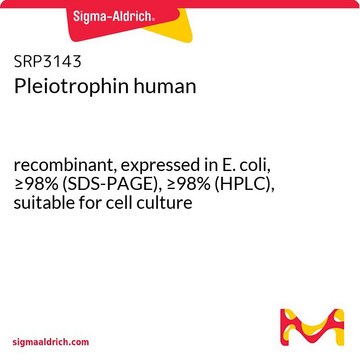SRP6166
HGF human
recombinant, expressed in HEK 293 cells, ≥95% (SDS-PAGE)
Sinônimo(s):
F-TCF, HPTA, Hepatocyte growth factor, Hepatopoietin-A (HPTA), Scatter factor (SF)
About This Item
Produtos recomendados
fonte biológica
human
recombinante
expressed in HEK 293 cells
Ensaio
≥95% (SDS-PAGE)
forma
lyophilized
peso molecular
70 kDa (single chain, glycosylated)
embalagem
pkg of 10 μg
técnica(s)
cell culture | mammalian: suitable
nº de adesão NCBI
nº de adesão UniProt
Condições de expedição
dry ice
temperatura de armazenamento
−70°C
Informações sobre genes
human ... HGF(3082)
Descrição geral
Ações bioquímicas/fisiológicas
forma física
Nota de preparo
Reconstituição
Código de classe de armazenamento
11 - Combustible Solids
Classe de risco de água (WGK)
WGK 3
Ponto de fulgor (°F)
Not applicable
Ponto de fulgor (°C)
Not applicable
Certificados de análise (COA)
Busque Certificados de análise (COA) digitando o Número do Lote do produto. Os números de lote e remessa podem ser encontrados no rótulo de um produto após a palavra “Lot” ou “Batch”.
Já possui este produto?
Encontre a documentação dos produtos que você adquiriu recentemente na biblioteca de documentos.
Nossa equipe de cientistas tem experiência em todas as áreas de pesquisa, incluindo Life Sciences, ciência de materiais, síntese química, cromatografia, química analítica e muitas outras.
Entre em contato com a assistência técnica